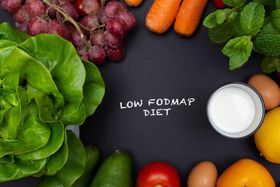Pregnancy Nutrition: Nourishing You and Your Baby
Updated October 3, 2024

Pregnancy brings a whirlwind of physical and emotional changes, and navigating this incredible journey requires more than just a simple diet. Your body is now nurturing yourself, and the precious life is growing within you. It's a journey of love and responsibility; every morsel you consume is a nourishing gift to your little one.
Are you feeling overwhelmed about providing the best nutrition for your developing baby? Fret not; we’re here to support you every step of the way!
In this blog, we'll guide you on making wise and healthy food choices, ensuring you and your baby get the nutrients you need while savoring the delights of taste. Let's embark on this incredible adventure of motherhood together, embracing the power of wholesome nutrition for a joyous and healthy pregnancy. Ready to dive into the nutrients that matter most during this magical time? Let's get started!
The Impact of a Healthy Diet During Pregnancy on Your Child's Health in the Future
What a healthy diet during pregnancy looks like? It should be " eat balanced diets not more but better." The role of a balanced diet at preconception, during pregnancy, and after birth is vital, as it affects the growth and development of the baby and even affects the health of the adult.
Healthcare professionals and mothers often neglect the importance of a balanced diet during pregnancy. According to research, most pregnant mothers in the USA do not meet the healthy weight and nutrient recommendations for expectant mothers. Many reports have shown that consuming unhealthy and substandard diets is common among pregnant women.
A healthy diet during pregnancy is crucial to your child's long-term health and well-being in adulthood.
The Following Are The Benefits of Healthy Nutrition During Pregnancy
Foundation for Health
A well-balanced and nutritious diet during pregnancy provides the building blocks for your baby's development. Essential nutrients like folic acid, iron, calcium, and omega-3 fatty acids support the growth of organs, bones, and the nervous system. These early investments in their health form the foundation for a strong and resilient body in adulthood.
Reducing the Risk of Chronic Diseases
Research suggests a healthy pregnancy diet can reduce the risk of chronic diseases in adulthood. Adequate nutrition during gestation can positively influence gene expression, lowering chances of obesity, type 2 diabetes, and heart disease later in life.
Cognitive Development
Nutrition plays a significant role in cognitive development. Omega-3 fatty acids in foods like fish and nuts are essential for brain development. A diet rich in these nutrients during pregnancy may improve cognitive abilities and academic performance.
Immune System Strength
A well-nourished fetus develops a robust immune system that is better equipped to defend against infections and illnesses. A diet rich in vitamins and antioxidants supports immune function, creating a shield of protection in adulthood.
Healthy Weight Management
An unhealthy diet during pregnancy can increase the baby's risk of childhood and adult obesity. By consuming nutritious and balanced meals, you can set the stage for healthy weight management in your child's future.
Emotional Well-being
Interestingly, a mother's diet during pregnancy can also influence the baby's emotional well-being in adulthood. Certain nutrients, such as folate and zinc, are linked to better mental health outcomes, reducing the risk of anxiety and depression.
Taste Preferences
What a mother eats during pregnancy can influence the baby's taste preferences later in life. Exposing the fetus to various flavors through the mother's diet can make them more receptive to diverse foods as they grow, promoting healthier eating habits.
Nutrient Requirements During Pregnancy
A well-balanced diet rich in various nutrients is essential to support the baby's development and ensure the mother's well-being. Macro and micro nutrients are needed for energy and weight gain during pregnancy, increased protein requirements for tissue and organ development, and fatty acids, like DHA, for brain and eye health. Minerals such as calcium, iron, and iodine play critical roles in bone formation, preventing anemia and supporting thyroid function.
Additionally, vitamins, including vitamin C, vitamin D, vitamin A, vitamin B6, vitamin B12, and folic acid, are essential for various bodily functions and the baby's optimal development. As every pregnancy is unique, seeking guidance from healthcare professionals or registered dietitians to tailor the nutrient intake to individual needs is highly recommended. By prioritizing nutrient-rich foods and embracing a healthy diet during pregnancy, you are giving your baby the best possible start in life and laying the foundation for a happy and healthy future.
Energy and Weight Gain
During pregnancy, energy requirements increase to support the growth and development of the baby. The exact amount of weight gain depends on the woman's pre-pregnancy weight. On average, most pregnant women need an additional 300-500 calories per day in the second and third trimesters.
Protein
Protein is crucial for the development of the baby's tissues and organs. Pregnant women should consume around 75-100 grams of protein daily from lean meats, poultry, fish, eggs, dairy products, legumes, and nuts.
Essential Fatty Acids
Omega-3 fatty acids, such as DHA (docosahexaenoic acid), are supporting the baby's brain and eye development. Pregnant women are advised to consume 200 milligrams of DHA per day. Good sources include fatty fish (e.g., salmon, trout, sardines), chia seeds, flaxseeds, and walnuts, or by supplementing the diet.
Minerals
Calcium: Adequate calcium intake is crucial for the baby's bone development and for maintaining the mother's skeleton strength. Pregnant women need about 1000-1300 milligrams of calcium per day. Dairy products, leafy greens, and fortified plant-based milk are good sources.
Iron: Iron is essential for forming red blood cells and preventing anemia. Pregnant women require approximately 27 milligrams of iron per day. Good sources include lean meats, beans, lentils, fortified cereals, and dark leafy greens, and in most cases, the physician will also consider iron supplementation.
Iodine is essential for the baby's thyroid function and brain development. Pregnant women need around 290 micrograms of iodine per day. Iodized salt and seafood are good sources.
Vitamins
Vitamin C: This vitamin aids in iron absorption and supports the immune system. Pregnant women need about 120 milligrams of vitamin C per day. Citrus fruits, strawberries, broccoli, and bell peppers are excellent sources.
Vitamin D: Vitamin D is essential for bone health and supports the baby's immune system. Pregnant women may need around 600-800 international units (IU) of vitamin D daily. Sun exposure and fortified foods like milk and some cereals are sources.
Vitamin A: Pregnant women should consume preformed vitamin A (retinol) in moderation, as excessive amounts can harm the baby. Good sources of vitamin A include sweet potatoes, carrots, and leafy greens.
Vitamin B6 is essential for the baby's brain development and metabolism. Pregnant women need around 1.9 milligrams of vitamin B6 per day. Chicken, fish, whole grains, and bananas are good sources.
Vitamin B12: Vitamin B12 is vital for developing the baby's brain and nervous system. Pregnant women require about 2.8 micrograms of vitamin B12 per day. Animal products like meat, fish, and dairy are sources.
Folic Acid (Folate): Folic acid is crucial in preventing neural tube defects in the baby. Pregnant women need around 600 micrograms DFE of folate per day. Fortified grains, leafy greens, and legumes are good sources.
Always consult a healthcare provider or a registered dietitian for personalized advice on meeting your nutrient needs during pregnancy.
Tips and Tricks to Prepare Cheap Healthy Meals
Preparing cheap and healthy meals during pregnancy doesn't have to be daunting. Embracing this incredible journey with a human touch means caring for your well-being and your baby's development without breaking the bank. Here are 10 practical tips and tricks to help you nourish yourself and your little one without compromising on nutrition or taste:
- Plan Ahead: Take a few minutes each week to plan your meals and create a shopping list. This will help you stay organized, avoid impulse purchases, and make the most of your budget.
- Buy in Bulk: Stock up on staple items like grains, beans, lentils, and frozen vegetables in bulk. Buying in larger quantities often comes with cost savings, and these items have a long shelf life.
- Embrace Seasonal Produce: Seasonal fruits and vegetables are fresher, tastier, and more affordable. Check out local farmer's markets for the best deals on fresh produce.
- Cook in Batches: Prepare larger quantities of meals and freeze portions for later. This way, you can save time and money while having nutritious meals ready to enjoy.
- Get Creative with Leftovers: Transform leftovers into new dishes to reduce waste. For example, use cooked chicken from last night's dinner in a salad for lunch the next day.
- Opt for Plant-Based Proteins: Plant-based proteins like beans, lentils, tofu, and tempeh are not only budget-friendly but also excellent sources of nutrients.
- Choose Whole Foods: Processed foods can be expensive and lack essential nutrients. For cost-effective nutrition, focus on whole grains, fruits, vegetables, and lean proteins.
- DIY Snacks: Instead of buying expensive pre-packaged snacks, make your own healthier versions. Trail mix, homemade granola bars, fresh-cut vegetables, nuts, and yogurt parfaits are excellent options.
- Stay Hydrated with Water: Drinking enough water is essential during pregnancy. Skip sugary and artificially sweetened beverages, which can be costly and less nutritious, and opt for water to stay hydrated.
- Seek Community Support: Join online forums or local pregnancy groups to connect with other expecting moms. Share tips, recipes, and cost-saving ideas to support each other on this beautiful journey.
Which Foods You Should Avoid During Pregnancy
During pregnancy, paying extra attention to what you eat is essential to ensure your and your baby’s well-being. Some foods should be avoided during this precious time to minimize potential risks and ensure a healthy pregnancy. Here are some important foods to steer clear of:
- Raw or Undercooked Meat: Raw or undercooked meats, including beef, poultry, and pork, may harbor harmful bacteria like salmonella, E. coli, and listeria, which can pose a risk to both you and your baby.
- Certain Fish High in Mercury: Avoid fish that are high in mercury, such as shark, swordfish, king mackerel, and tilefish. High mercury levels can harm the baby's developing nervous system.
- Raw Seafood and Shellfish: Avoid raw seafood, shellfish, and sushi (even vegan are not recommended to buy out); they may carry harmful bacteria or viruses that can cause food poisoning, leading to complications during pregnancy.
- Unpasteurized Dairy Products: Avoid unpasteurized milk, cheese, and other dairy products. They may contain harmful bacteria like listeria, which can be dangerous for pregnant women.
- Raw or Undercooked Eggs: Avoid consuming raw or undercooked eggs (look for ingredient list of mousse, truffles, etc.), as they can carry salmonella, potentially causing foodborne illnesses.
- Deli Meats and Hot Dogs: Deli meats and hot dogs may be contaminated with listeria, making them unsafe for pregnant women unless they are heated to steaming hot temperatures.
- Excess Caffeine: While moderate caffeine intake is generally safe during pregnancy, excessive consumption may lead to complications. Limit your caffeine intake to 200-300 mg daily (equivalent to about one 12-ounce cup of coffee).
- Unwashed Fruits and Vegetables: Thoroughly wash all fruits and vegetables to remove any potential pesticide residue or harmful bacteria.
- Unpasteurized Juices: Opt for pasteurized juices to avoid the risk of foodborne illnesses.
- Alcohol: It's best to avoid alcohol entirely during pregnancy, as it can harm the developing baby and increase the risk of various birth defects.
How to Manage Pregnancy Cravings
Managing pregnancy cravings can be a delightful and challenging aspect of the journey to motherhood. While these sudden urges for specific foods are entirely normal, it's essential to strike a balance between indulging in your cravings and maintaining a healthy diet for you and your baby. Here are some helpful tips to navigate and manage pregnancy cravings with ease:
- Pay attention to what triggers your cravings. Is it stress, boredom, or a specific time of day? Understanding the underlying reasons behind your cravings can help you find healthier alternatives to satisfy them.
- Sometimes, thirst can masquerade as a craving. Ensure you're drinking enough water throughout the day to stay hydrated and avoid unnecessary snacking.
- If you're craving something sweet, reach for natural sources of sweetness like fresh fruits. If it's salty or crunchy, you desire to try nuts or whole-grain crackers. Choosing nutrient-dense options can help satisfy your cravings while providing essential vitamins and minerals.
- Give in to your cravings in moderation. Savor a small serving of the desired food rather than indulging excessively. Enjoying a treat mindfully can be satisfying without derailing your healthy eating habits.
- Stock your pantry and refrigerator with healthy snacks like yogurt, cut-up veggies, and hummus. Having nutritious options readily available can help curb unhealthy cravings.
- When cravings strike, find a distraction to shift your focus. Go for a walk, read a book, or practice deep breathing exercises. Engaging in activities you enjoy can help take your mind off the craving.
- Lack of sleep can contribute to cravings. Aim for 7-9 hours of quality sleep each night to reduce the likelihood of succumbing to unhealthy food desires.
- Skipping meals can lead to increased cravings and overeating. Stick to regular, balanced meals and snacks to maintain stable blood sugar levels.
- Talk to your partner, friends, or family members about your cravings. Sometimes, sharing your experiences and feelings can provide comfort and support.
- Remember that occasional indulgence in your cravings is normal and okay. Don't beat yourself up over it. Focus on overall healthy eating habits and forgive yourself for the occasional treat.
Managing pregnancy cravings is about finding harmony between satisfying your desires and nourishing your body. By making mindful choices and seeking balance, you can navigate this exciting phase of pregnancy with joy and well-being for both you and your baby.
Takeaway Note
Pregnancy is a transformative journey that requires a special focus on nutrition to support the well-being of both mother and baby. A well-balanced and nutrient-rich diet during pregnancy lays the foundation for a healthy future for your little one.
Key nutrients like protein, essential fatty acids, minerals, and vitamins play crucial roles in the baby's growth and development. Embracing seasonal produce, planning ahead, and preparing budget-friendly, healthy meals can help you stay on track with your nutritional goals. However, it's equally important to be aware of foods to avoid during pregnancy, such as raw meats, high-mercury fish, and unpasteurized products.
Managing pregnancy cravings is also an essential aspect of maintaining a healthy diet. Identifying craving triggers, staying hydrated, and choosing nutrient-dense alternatives can help satisfy cravings while keeping your nutrition in check. Remember, nurturing yourself with a balanced diet is an act of love that sets the stage for a bright and healthy future for you and your baby. Embrace the journey of motherhood with nourishing nutrition, and cherish this magical time with joy and well-being.
The content and advice provided in this article are for informational purposes only and are not a substitute for medical diagnosis, treatment, or advice for specific medical conditions. Always consult a pediatrician to understand the individual needs of your child.









